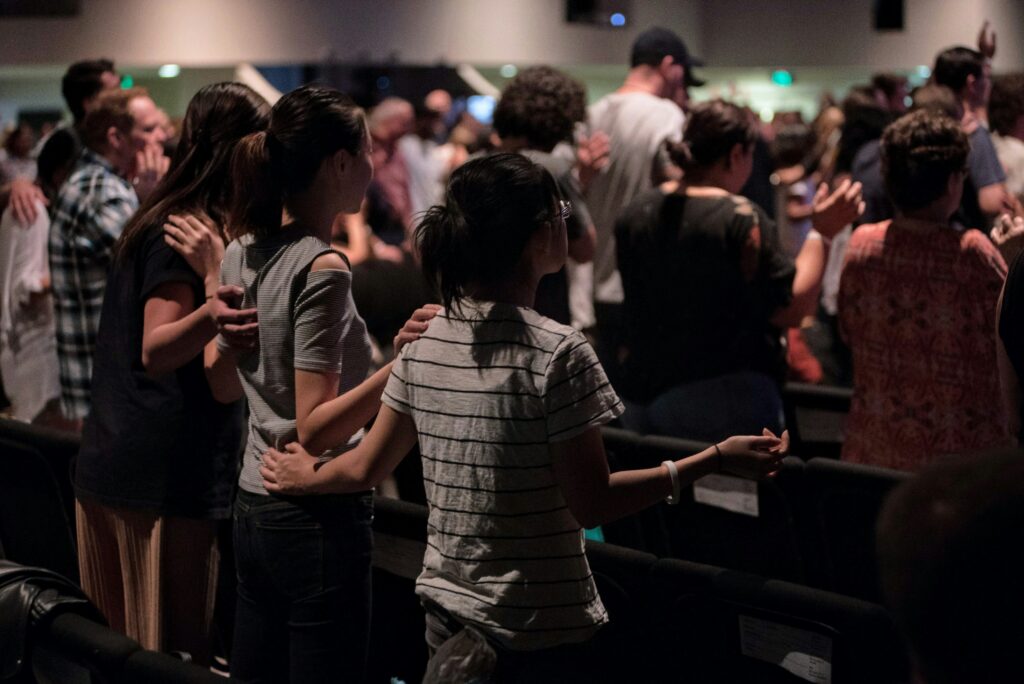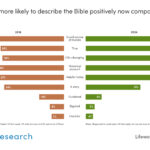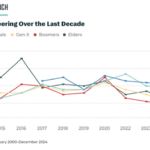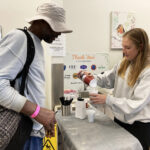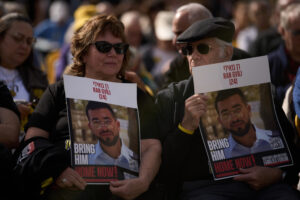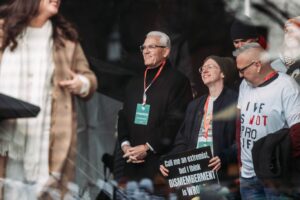
PHILADELPHIA (BP) – Nearly half of American Christians, 45 percent, have not attended church in the past six months, the American Bible Society said in its latest release from the 2025 State of the Bible.
About two-thirds of American adults – 64 percent – say they are Christian, but of those only 55 percent attend church, ABS said Aug. 14 in releasing its fifth chapter of the study. In its fifth chapter, ABS polled church attendees to determine levels of church engagement, viewed as involvement in the life, mission and community of a local church.
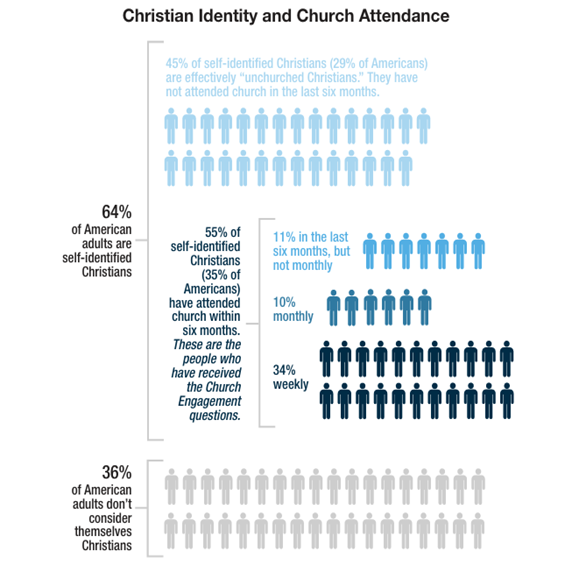
But for Christians who attend church, accounting for 35 percent of Americans, higher church engagement led to higher human flourishing.
Researchers gauged levels of engagement by asking if attendees had opportunities to learn and grow in their faith, had a best friend at church, whether someone at church encouraged their spiritual development, whether the pastor or another church leaders seemed to care about them as a person, and if they had opportunities to use their spiritual gifts at church.
“People’s lives improve when they engage with their church – not just attending, but using their gifts, developing relationships, and taking advantage of opportunities to grow spiritually,” said John Plake, ABS chief Innovation officer and editor-in-chief of the State of the Bible series. “Our survey shows that church-engaged Christians have significantly less stress, less anxiety, less loneliness and more hope. For years now, we’ve seen these same effects with Scripture engagement, but the church provides a living environment where these factors can play out. The pairing of church and the Bible is a powerful force.”
Among attendees, 62 percent of those who ranked high in church engagement also ranked high in human flourishing, 40 percent of those with average church engagement scores ranked high in human flourishing, and only 23 percent of those who ranked low in church engagement scored high in human flourishing, researchers said.
Those who attended church frequently experienced greater engagement, but researchers made no conclusions on whether the opportunities to be engaged drove attendance, or whether engagement was a result of attendance.
“We expect those who attend weekly to be the most engaged at church, but the striking detail here is the relatively small difference between monthly attenders and those who attend maybe twice a year,” researchers wrote. “Some churches consider people ‘regular’ attenders if they show up once a month, but here we see data to dispute that. Whether we’re talking about pastoral care, the use of gifts or growth opportunities, weekly attenders are more than twice as likely to respond enthusiastically.”
Among weekly attendees, 59 percent expressed opportunities to learn and grow in their faith in the past year, compared to 22 percent of monthly attendees; 35 percent had a best friend at church, compared to 15 percent of monthly attendees; 55 percent said someone at church encouraged their spiritual development, compared to 24 percent of monthly attendees; 61 percent said a pastor or another leader seemed to care about them as a person; and 44 percent had opportunities to use their giftings, compared to 17 percent of monthly attendees.
Demographically, Generation Z – ages 18-28 – scored consistently lowest in church engagement in all questions asked, researchers said, with scores varying in other demographic groups including Millennials (ages 29-44), Gen X (ages 45-60) and Baby Boomers (ages 61-79).
Only 1 in 5 Gen Z felt strongly they can use their gifts at church, compared to 1 in 3 across all other generations, and only 1 in 4 of Gen Z felt strongly their church encourages their spiritual development.
Evangelical Protestant church members expressed higher levels of church engagement, researchers said, but acknowledged that difference denominations have different rules determining appropriate engagement. Specifically, 39 percent of Evangelical Protestant expressed high engagement, followed by 30 percent of Mainline Protestants, 19 percent of Historically Black Protestants and 12 percent of Roman Catholics.
“We recognize that our selection of the Church Engagement items may reflect an evangelical bias,” researchers wrote, “and that other groups may have different beliefs about what a church should be or do, so we’re careful in evaluating these numbers.”
Among other findings regarding church attendees:
- 46 percent felt strongly that their pastor, or another church leader, cared for them as a person; 48 percent agreed with the sentiment but not as strongly, and 6 percent disagreed.
- 92 percent of attendees agreed to some extent at least that church gave them opportunities to learn and grow in their faith, while 8 percent said they did not.
- 33 percent agreed strongly that they have opportunities to use their gifting at church, 55 percent agreed or somewhat agreed, and 12 percent disagreed.
- 27 percent felt strongly or somewhat strongly that they have a best friend at church, 38 percent agreed or somewhat agreed with the statement, and 35 percent disagreed.
Research findings are gleaned from a nationally representative survey performed for ABS by NORC at the University of Chicago, using their AmeriSpeak panel. The data came from 2,656 online interviews conducted Jan. 2-21 with American adults in all 50 states and the District of Columbia. Other 2025 State of the Bible chapters will be released through December.
Download the first five chapters here and access other resources including State of the Bible podcasts and interviews.
